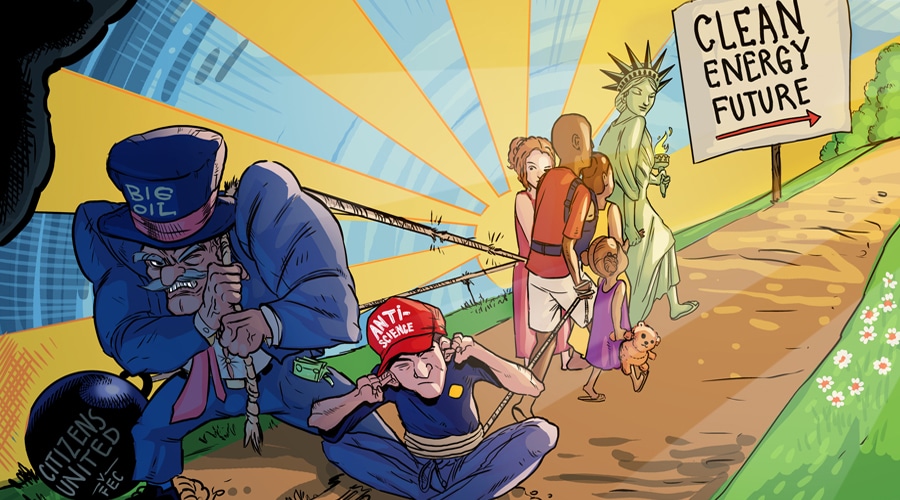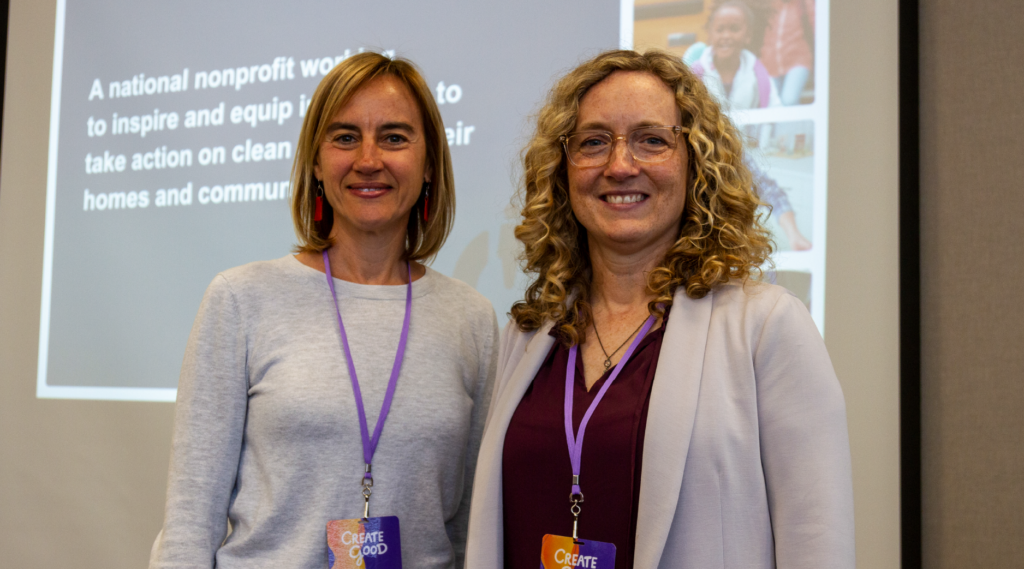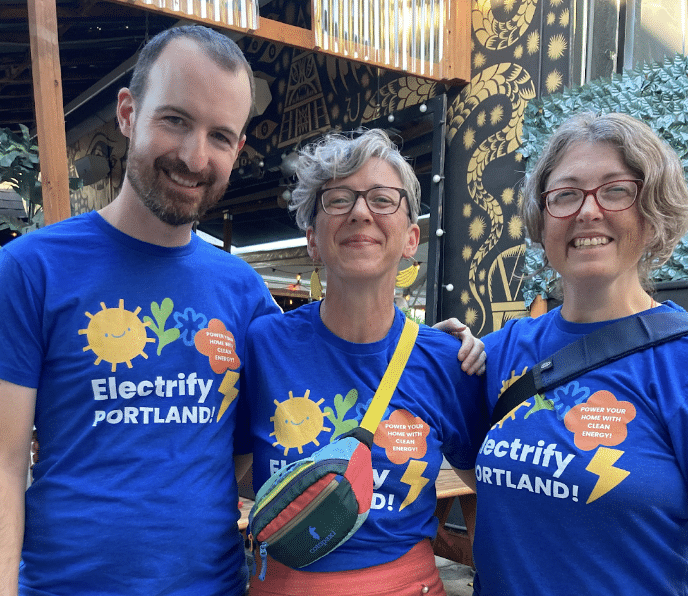Over the past few years, an epic tale of intrigue has rocked the climate change community – a story that reflects the best of crime fiction but that sadly is all too real. Since 2015, a growing body of evidence has revealed the extent to which Big Oil companies and other fossil fuel majors covered up their role in fueling climate change, sowing uncertainty and failing to head off the impacts we’re now seeing in the form of wildfires and other climate disasters. But the cat’s out of the bag. So how can we hold the industry accountable and move forward?
What they knew
A recent three-part PBS documentary on “the power of big oil” is downright outrage-inducing. Based on interviews with industry scientists and on thousands of internal documents (many newly uncovered), it details how ExxonMobil knew for decades that burning fossil fuels increases carbon dioxide levels in the atmosphere and causes climate change, posing “catastrophic” risks to the planet. Yet the company (and others) invested billions of dollars over 40-plus years in a concerted effort to spread misinformation, delay action, and keep profits flowing.
Meanwhile, the science was (and is) solid. Even by the 1980s, there was widespread agreement in the scientific community, including among NASA government experts, that rising temperatures would bring about significant climate changes – with the only uncertainty being “where that was going to happen and how fast.” But once ExxonMobil realized that climate action posed an existential threat to its business, it oiled its well-funded propaganda machine and began misleading the public about the “inconclusive science” on the issue.
And it worked. Gus Speth, in his 2021 book They Knew, details how seven successive US administrations (from Carter to Trump), driven by industry pressure and anti-regulation ideology, remained wedded to the fossil fuel economy, despite knowing about the impending risks of climate change and their link to oil, gas, and coal. Even as the country started feeling real-world climate impacts, the industry downplayed the urgency of climate action, discrediting scientists and doling out talking points for politicians aimed at derailing a carbon tax and other key climate legislation.
Ongoing denial and inaction
The worst part is, it’s still happening – preventing us from rapidly transitioning to the clean energy future we need. The well-strategized climate-denial playbook is going strong, as the fossil fuel industry continues to use its vast PR machine to slow climate action while touting its “green” contributions (including false solutions like carbon capture and storage). Unanimous Republican opposition as well as the industry’s chokehold on key Democrats have blocked President Biden’s efforts to pass climate legislation, and now companies are using the excuse of the war in Ukraine to expand oil and gas production.
In an October Congressional hearing on the role that fossil fuels have played in fueling climate change, ExxonMobil CEO Darren Woods denied that the company lied about climate change, claiming it “has long acknowledged the reality and risks of climate change and…has devoted significant resources to addressing those risks.” Yet even the latest IPCC report states with high confidence that U.S. climate action has been delayed “due to misinformation about climate science that has sowed uncertainty, and impeded recognition of risk.”
Moving forward: how you can hold the industry accountable
As the climate crisis approaches “code red for humanity,” we need to acknowledge the time we’ve lost and then move forward quickly, so we don’t continue to miss opportunities to speed the clean energy transition. Key politicians are now acknowledging that they were misled on the science, and even former industry flaks admit to being on the wrong side of history. Given what we now know about what the industry knew about climate change, it’s time to feel empowered, not despondent. Each of us has a role to play, in our own spheres of influence. Here are a few areas for action:
Get informed, and then share what you’ve learned
Representative Ro Khanna (D-CA) has noted that, “We won’t solve the climate crisis unless we solve the misinformation crisis.” Take a closer look at the language that fossil fuel companies are using, and be skeptical. Try to see through the hype, and help others do it too. Spread awareness about climate falsehoods and have hard conversations. Speth hopes his book (and similar exposés) enrages people and spurs them to take action.
Support climate-related legislation, and the politicians behind it
Call your representatives to hold them accountable on the climate issue, and urge them to also hold fossil fuel companies accountable. Vote for politicians who support climate policy, including measures to phase out subsidies and other financial support for fossil fuels. Meanwhile, expose politicians who are denying the issue and failing to take action. Support the Polluters Pay Climate Fund Act, which would require fossil fuel companies to pay into a fund based on a share of their global emissions.
Engage in shareholder activism
Perhaps the greatest threat to the fossil fuel industry is the potential loss of investors as companies continue to ignore impending risks to their financial viability. Both ExxonMobil and Chevron faced massive shareholder revolts last year pressuring the companies to take climate action, and the upcoming proxy season should be a nail-biter. If you’re a shareholder, use your proxies to vote for climate-related resolutions. Another option is to buy a green share so you can file and support resolutions, or you can divest from fossil fuel companies altogether and invest in fossil-free funds. Also, urge the SEC to support a proposed new rule that would require companies to report on how climate change affects their business. Universities are businesses too and when they divest, it amounts to billions of dollars funneled away from fossil fuel projects. Many schools have already divested thanks to student pressure—follow this guide for where to start with your alma mater.
Support climate-related creative communications
PR folks have played a key role in perpetuating misinformation, but they can also be a force for good. The Clean Creatives campaign and Fossil Free Media help artists and communicators reject highly polluting work and work with organizations to fight the fossil fuel industry. Recent examples of creatives pushing back are Banksy’s enigmatic murals, clever spoofs of Shell ads, late-night comedy’s dedicated Climate Night, the YouTube comedy channel ClimateTown, and Europe’s Badvertising campaign to stop ads fueling the climate crisis. Even museums are ditching fossil fuel company sponsorship. If you’re a creative, take the CleanCreative pledge to “decline any future contracts with fossil fuel companies, trade associations, or front groups.” Also, check out Gen180’s Climate Comedy Cohort.
Lobby the media to get on board
According to critics, the media has “let us down big time” on climate, largely ignoring the misinformation scandal and preventing people from knowing about it. Journalist Mark Hertsgaard asserts that the fossil fuel industry’s deception needs to “be central to the public narrative.” This requires news outlets to commit to doing much sharper coverage of these issues. Check out Covering Climate Now for briefings and tips on how to better tell the story. If social media is your gig, try using greentrolling to counter industry-funded deception.
Find hope in the courts
The legal risks to fossil fuel companies of continuing to spread misinformation – and of failing to back up their words with actions – are growing. We also need a “judicial kick in the pants” to ensure that the federal government will be accountable and take action on climate. Several cities and states, including New York and Massachusetts, have filed legal actions accusing fossil fuel companies of misleading investors and consumers about the impacts of climate change on their business (see this running tally of climate-related litigation). Visit #ExxonKnew to encourage the U.S. Department of Justice and State Attorneys General to investigate Exxon and other fossil fuel majors complicit in climate deception.
Above all, mobilize
Moving forward, we need to be persistent and to apply constant pressure for action, through a massive citizen mobilization to drive change. At the same time, it’s important to acknowledge that climate change likely isn’t going away. This means supporting local resilience efforts and helping to fortify our communities against the impacts that can no longer be avoided, in part because of the decades we’ve lost in delay. Speth’s recipe for effective action? “Relentless citizen presence, mobilization, activism, demands, funny things, serious things, and not letting up.”
Relentless citizen presence, mobilization, activism, demands, funny things, serious things, and not letting up.















